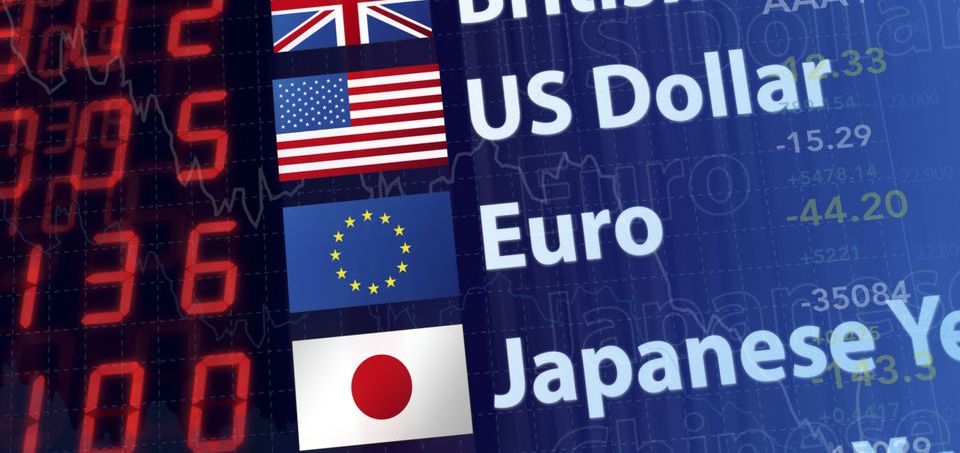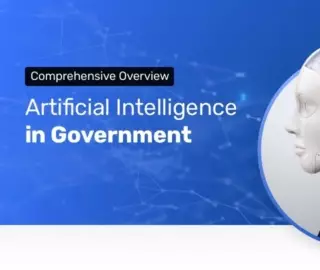
NASDAQ estimates more than $5 trillion is traded every day in what it describes as “the most actively traded market in the word:” foreign exchange, or forex. Business leaders might expect AI to make its way into the forex world the way it has into finance and banking broadly. Most companies claim to assist foreign exchange traders by predicting when to trade or hold onto currencies. As it turns out, however, Most of the AI vendors in the forex space are in fact only claiming to use AI. There is strong evidence to suggest that their claims are illegitimate.
We researched the space to better understand where AI comes into play in foreign exchange trading and to answer the following questions:
- What types of AI applications are currently in use in foreign exchange trading?
- What tangible results has AI driven in foreign exchange trading?
This report is one of the less traditional of our industry applications reports. Aside from Nikkei, the companies listed in this report seem to have little to no legitimacy when it comes to the AI they claim is at the core of their products and solutions. As such, we have divided this report into two sections:
- AI-based Forex Solutions Under Development
- Forex Solution Vendors Lying About Using AI
This article intends to provide business leaders in banking and finance broadly with an idea of what they can currently expect from AI in foreign exchange trading, and, perhaps more importantly, what they should not expect. We hope that this report allows banking and finance executives to understand how a company claiming to offer an AI solution for foreign exchange trading might be lying about their use of AI and provides them with enough information to confidently steer clear of AI in forex at this time.
AI-based Forex Solutions Under Development
Nikkei
Nikkei is a Japanese media enterprise with over 3,000 employees. The company claims its AI software could help predict fluctuations in the foreign exchange market and accurately forecast the exchange rate between the US dollar and the Japanese yen using natural language processing.
Nikkei claims a banking institute or currency speculator could use its AI to predict the exchange rate between the US dollar and the Japanese yen. Nikkei claims its AI is trained on data from Nikkei’s database of articles, long-term dollar-yen trends, commodity prices, and other market indicators. This allows the company’s software to predict the potential future exchange rate between the two currencies.
If the software predicts the exchange rate will fall, a company could exchange the currency to avoid the lessening of its value. Conversely, if the software predicts the exchange rate will increase, a company might hold onto its currency or acquire more. The exact method by which the software conveys its predictions are unknown at this time.
Nikkei does not have a demonstration video available showing how its software supposedly works.
The company reported that its forex software won the company’s quarterly Dollar-Yen Durby, a yearly competition it puts on for its readers and in-house analysts in which participants attempt to predict the exchange rate of the dollar and the yen one month from the start of the contest. One of the company’s top-rated analysts came in second, having predicted a value .06 yen off from the actual currency value. Nikkei’s software beat the analyst with a predicted value that was 0.05 yen off from the actual currency value.
It should be noted that the competition’s winners were picked by the company; that their software won is not necessarily a testament to its efficacy. The Nikkei Group does not provide actual case studies reporting success with its software because it is still under development and it is at present only being used in-house. Readers should approach the results of the competition with a healthy amount of skepticism.
We were unable to find any C-level executives with AI experience on the company’s team; however, Yutaka Matsuo is an Associate Professor at the University of Tokyo who reportedly played a key role in developing The Nikkei Group’s forex software. He holds a PhD in Information and Communication Engineering from the University of Tokyo.
Forex Solution Vendors Lying About Using AI
Companies claiming to offer forex solutions, in general, do not seem to have the kind of trust signals we look for when vetting AI vendors and companies claiming to use AI in any legitimate sense. Only Nikkei seems to have the kind of legitimacy we expect from companies claiming to use AI only because Nikkei is an established enterprise, and their forex solution is still under development. Additionally, we could not verify the AI background of the professor who spearheaded the software’s development
During the course of researching AI solutions for forex that we intended to include in this report, we found several examples of companies that purport to have AI at the core of their software solutions. These companies, however, are by our determination likely not legitimately using AI. One such company is Vantage Point ai, which of all of the companies we found report the most results for its software by way of testimonials and a claim of having over 25,000 users.
Vantage Point ai is a US-based company with 40 employees. The company offers a software called which it claims can help individual traders and investment businesses more accurately predict short-term market trends using machine learning.
Vantage Point ai claims users must log into their paid membership account to gain access to the software. According to the company, the software makes its prediction by correlating stock, bonds, commodities, and currencies over time to figure out which of these factors have the greatest influence on certain currency pairs. Although it would require financial know-how to make best use of the prediction VantagePoint AI generates, Marketing Technologies claims to offer training on how to use their software.
That all said, the company does not list any case studies reporting on businesses that have had success with its software. We also could not find anyone on Vantage Point ai’s team with a robust background in AI.
We also identified Altredo, Lulubot, ROFX, and Scion Forex Autotrader as companies claiming to use AI without having the academic or business experience on their leadership teams to backup their claims.
All four of these AI companies claim their AI aids in forecasting the value of a currency or two currency pairs in the short term using historical market trends; however, none of these companies provide explanations as to how the supposed AI behind their software works. Although many legitimate AI vendor companies fail to report on their software’s user experiences, the most telling factor that these companies do not have AI at the core of their products is that none of these companies have AI talent on their executive teams.
Many companies claim to use AI without actually doing so. They do this to latch onto the AI hype that’s been growing over the last few years, and oftentimes they succeed in selling to business leaders that don’t know how to determine whether or not they are telling the truth.
Sometimes, supposed AI vendors use human labor to do the work that they claim on their website an AI is doing. Other times, the software at the core of their product is successful at achieving success for a client’s business goals, but that software is in fact not AI and the vendor knows it.
Our industry applications reports often bring attention to the marquee clients of the companies we cover. None of the companies listed in this report claim business clients when it comes to their supposed AI-based forex solutions. Nikkei is an enterprise media company, but their forex solution is again underdevelopment and currently only used in-house.
Scion Forex AutoTrader states its software has been “seen on” various websites and news outlets, such as Facebook, in order to bolster their reputation, but their long-form sales letter-style website is perhaps the most immediate sign that they are not doing legitimate business with Facebook.
We’ve found the most important trust signal when it comes to determining if an AI company is lying about using AI is the experience its executive team brings to the table. Again, none of the companies reporting to provide AI forex solutions have people on their executive teams with academic or work experience dealing with artificial intelligence and machine learning.
Altredo’s CTO (one of three employees at the company) has a PhD in Flow in Wave Motion in Fluids and Solid Bodies from the Institute of Thermodynamics, but this credential is not the same as a PhD in computer science, or, better yet, in artificial intelligence, machine learning, natural language processing, or machine vision. In addition, Nikkei, Vantage Point ai, and Altredo are the only companies listed in this section of the report that have LinkedIn profiles, which indicates to us that business leaders may not want to trust Lulubot, ROFX, and Scion Forex Autotrader.
Takeaways for Business Leaders in Foreign Exchange
Although many banks and financial institutions do foreign exchange trading, the state of AI in the sector is relatively nascent in comparison to AI in other sectors of the finance industry, including insurance, specifically in the claims department.
The forex sector is one based solely on international trade, resulting in an anarchic system with no single governing body able to enforce contracts and deliver recourse for those that breach contracts. Comparatively speaking, there are far less regulations on the exchange of foreign currencies than on the trading of stocks, bonds, and commodities.
Additionally, the foreign exchange market is generally well-understood; little innovation is needed to optimize the trading of one currency for another. Large banks conduct many of the foreign exchange trades that occur on the market because they have the most access to capital, but because the industry is highly strategic, there is a great deal of secrecy behind the decisions that go into these trades. It is possible that these large banks are using AI for their foreign exchange trading, but if they are, they do not make that information available.
In addition, a company seeking to create a machine learning model for foreign exchange trading would require data from a variety of trades made around the world to best inform it on how to successfully conduct foreign exchange trades between a variety of currencies. This is difficult if the world’s banks keep the decisions behind their foreign exchanges under wraps.
Business leaders in finance should not expect an AI to handle their foreign exchange trading anytime soon, and they might do well to be wary of AI vendor companies claiming to offer forex solutions. These companies are likely not using AI, and business leaders cannot afford to be fooled by vendor marketing tactics.
Of all of the companies listed in this report, Nikkei’s forex solution seems like it has the potential to be the most legitimate if it were to make it to market, but this does not seem likely considering that Nikkei is a media company.
If there is going to be AI-based foreign exchange trading software available to businesses in the next two to five years, they will likely come out of either startups funded by venture capitalist firms in Silicon Valley or out of the largest banks, the latter of which may keep their solutions in-house.
Overall, it seems AI innovations are not happening in the forex space at this time. Business leaders in finance should keep this in mind when discussing AI in their industry so that they can perhaps steer the conversation away from AI solution for forex if it ever comes up in executive meetings.
Header Image Credit: TripSavvy







